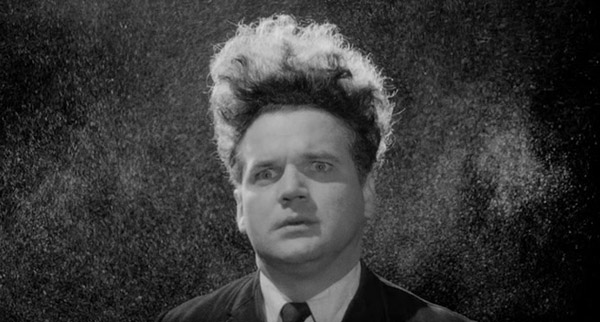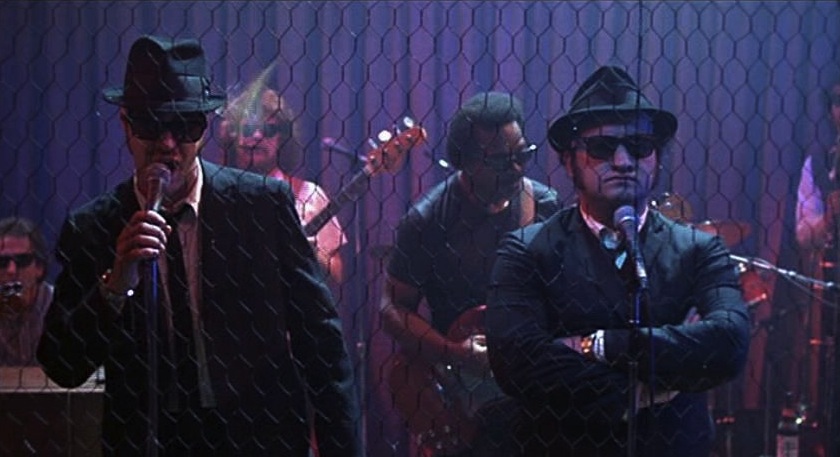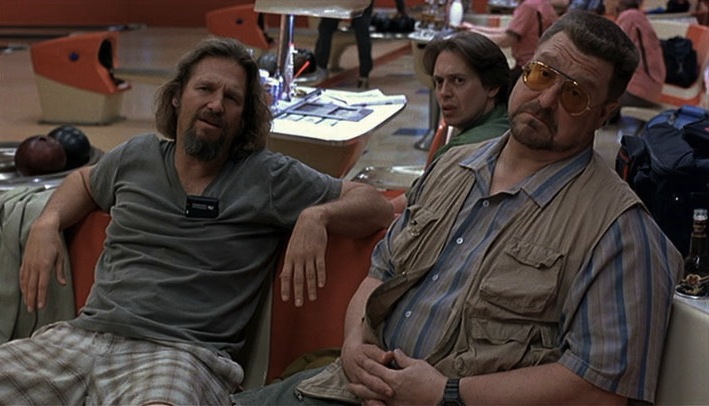Eraserhead
1976. Directed by David Lynch

As much as I liked the visual and aural qualities of this film, I couldn’t make it all the way through. It reminded me of a recurring series of nightmares I had as a child, in which I would accidentally kill tiny animals in horrible ways. The film starts out utterly surreal, but slowly takes form as a sort of 1984-ish, dystopian drama about a hapless man living in a barren industrial landscape and the hideous baby creature he is forced to care for. This man has strange bride of Frankenstein hair, hallucinates a miniature vaudeville stage in his radiator, and hides a white, claw-like thing in one of his dresser drawers. He begins to dream of killing miniature versions of the deformed creature he is caring for, and this is what made me call it quits. These dreams were more comic than horrifying, but I could tell where they were leading, and I wanted out. Eraserhead was apparently David Lynch’s first feature film, and it is an incredibly nihilistic work. Lynch is a director I’ve heard much about but never watched. If Eraserhead is any gauge of the rest of his work, I might just stay away.
Greenberg
2010. Directed by Noah Baumbach

While I can’t condone its objectionable elements, Greenberg is an otherwise delightful experience. Noah Baumbach is a close friend of director Wes Anderson, and has shared writing credits on a few of Anderson’s films. His narrative style and themes are similar to Anderson’s, dealing with likable neurotic characters in a dead-pan fashion, but Baumbach takes a realistic approach, abandoning Anderson’s storybook world for one that feels more like ours. The title character, played delicately by Ben Stiller, is a lost 40-something who still hasn’t found direction in his life. He regrets his bad choices, but can’t seem to find the energy to make good ones. He wants to find love, but he’s not willing to be selfless enough to attract a mate. Basically, Greenberg is a jerk, but he deeply regrets it and that’s what makes him such a sympathetic character. I think everyone can see a bit of themselves in this man. Will he continue to be selfish? Does he have any hope of changing his ways or maturing? Do we? Baumbach asks these questions and mostly leaves the answers to us, and I for one felt both moved and challenged.
The Blues Brothers
1980. Directed by John Landis

This is the stuff film legend is made of. Iconic characters, actual Chicago locations, legendary musicians and singers, huge dance numbers, brilliant one liners. Wow! The Blues Brother is a love letter to both the blues and Chicago, featuring generous helpings of both, and it’s also an incredibly funny, cool and ridiculously over the top ride. The final, hundred-car chase sequence, culminating in a mind-bogglingly huge assault on the actual Daley Center in downtown Chicago, is probably the most epic cinema event to occur on film. A must-see.
The Big Lebowski
1998. Directed by Joel Coen

It’s a cult classic, but it’s not my favorite Coen film. Sure, it’s got a lot of funny lines, some truly inspired events of lunacy, and a nice neo-noir plot, replacing the traditional hard-boiled detective with a likable stoned hippy; but overall, The Big Lebowski left a bad taste in my mouth. Maybe it’s the bad language, which is embarrassingly incessant, or maybe it’s the loose sexuality of the female characters. I know the Coen’s weren’t trying to make a tasteful film here, but they still went a little too far. I admit it, I laughed out loud a few times, but ultimately it left me cold. I’d much rather watch Fargo or The Hudsucker Proxy.
Wallace And Gromit: A Matter of Loaf and Death
2008. Directed by Nick Park

I can’t believe it took me this long to discover this film. I grew up with the first three Wallace and Gromit films, which were some of the most brilliant cinematic experiences of my youth––The Wrong Trousers might just be the best short animated film ever––so when I saw this on the library shelf, I was super excited. I must say though, the charm has really run dry over at Aardman Studios. The secret to the Wallace and Gromit series and its success is found in its utter and complete innocence. There was not a hint of sexual tension or double entendre in the first three films, but it’s everywhere in this one. This time around Wallace and Gromit run a bakery, so we get loads of “bun” related humor, We also get a racy dough-kneading scene between Wallace and his busty new love interest, and even an exposed backside in the film’s climax. Really? Really Mr. Park? You think these kind of jokes belong in such an innocent, child focused franchise? I never saw the Wallace and Gromit feature film, The Curse of The Were-Rabbit, which Aardman released in 2005, but I heard it suffered from the same bad taste. The sad thing is, this series was once the epitome of excellent animation and storytelling. Now it just seems to be copying American corporate trash like Shrek. A Matter of Loaf and Death also seemed a lot less focused than the first three shorts. The plot isn’t very well paced, and random events occur in the action scenes without explanation. This wouldn’t be such a problem except for the fact that the first three films were so precisely choreographed in their action, which was another big part of their original charm.
